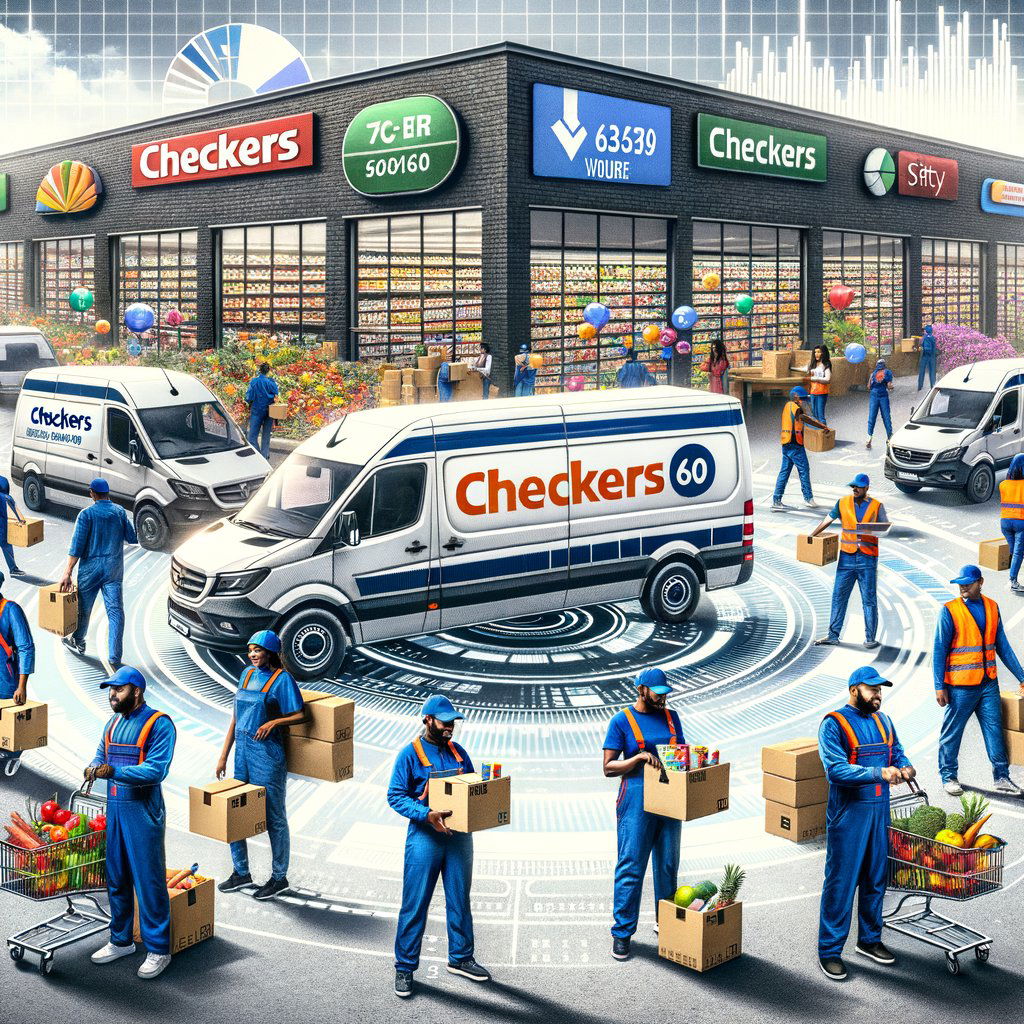Image created by AI
The Hidden Truth of South Africa's Lucrative Grocery Delivery Industry
South Africa's booming grocery delivery industry, valued at an impressive R14 billion, has been a catalyst for employment creation, yet it's mired in controversy over questionable business ethics and a preference for hiring foreign drivers. At the heart of the matter is Checkers Sixty60, leading the charge as the industry's flagship service.
Trade Intelligence's recent report sheds light on the sector's magnitude and growth trajectory. The difficulty in gauging the full scope of the industry arises from the retailers' selective and inconsistent data reporting. Some choose to disclose volume growth, while others focus on value increments or, in rarer cases, the percentage of total revenue.
The predicament thickens as one seeks to decrypt Woolworths' financials, who report online sales strictly as a fraction of total food sales. Piecing together these disparate data points to form an accurate market perspective proves to be an arduous task. Despite these hurdles, Trade Intelligence puts forth an estimated value of R13.9bn for the FMCG e-commerce segment in 2023, constituting 1.8% of the total FMCG retail market, with a striking 44.1% growth from the previous year.
While major grocery chains are embracing delivery services, it's noted that Shoprite, the country's largest grocery chain, has only just begun exploring this avenue. Besides Checkers Sixty60, its delivery reach extends narrowly through Cash & Carry offerings. Emerging forces like Boxer and Usave, despite rapid expansion, have yet to leave an imprint on the eCommerce realm.
To envision an e-commerce sector amassing 30% of the overall grocery market share is to imagine a radical transformation of the landscape, one where every third checkout aisle caters solely to online transactions. This seismic shift would necessitate an army of delivery drivers, a contentious issue touching on the social fabric of South African employment practices.
Checkers Sixty60, having celebrated five years of operation and boasting millions of app downloads, is an emblem of convenience but also controversial labor practices. The success of Sixty60 is powered by Pingo Delivery, a joint venture with Shoprite owning a hefty share. The 2023 financials reveal strong performance by Pingo, fueled by Sixty60’s delivery fees, supporting a vast network of drivers.
However, Shoprite's recent complete acquisition of Pingo, while greenlighted by the Competition Commission, drags with it inherited complications. The drivers, employed as "independent contractors" without the full spectrum of employee benefits, are at the center of a dispute that questions the ethics of their employment status and leans heavily on foreign labor.
Michael Bagraim, a Democratic Alliance MP, echoes societal concerns that these drivers may indeed be more akin to employees than contractors, given their working conditions and pay scale. This throws Shoprite's labor practices into question, potentially inviting legal reevaluation and a call for more ethical standards within the industry.
The juxtaposition of the industry's financial allure and its ethical conflicts underscores the challenges facing South Africa’s burgeoning e-commerce sector — challenges that beg for resolution to ensure the industry's future is not only profitable but also principled and fair.










